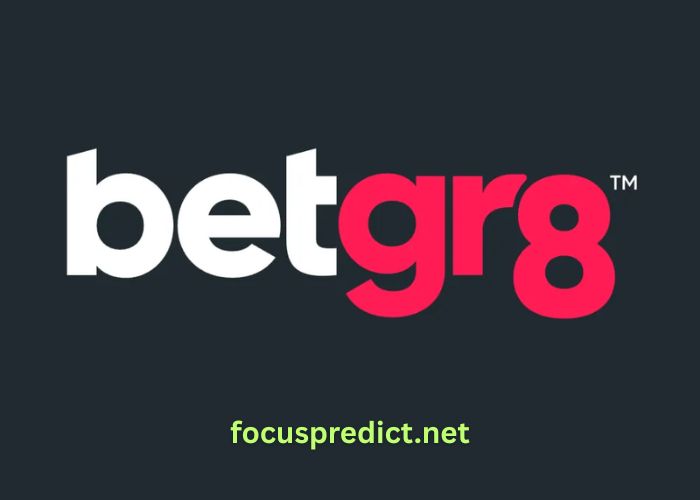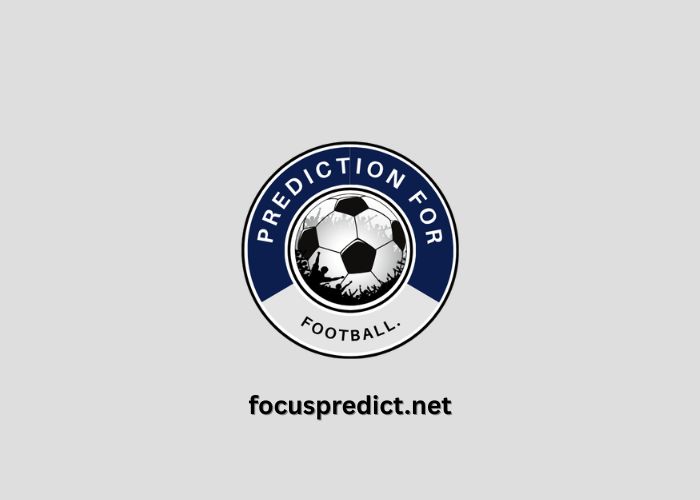Developing strong financial habits is more than just a new year’s resolution—it’s a lifestyle change that creates long-term security and peace of mind. As we step into 2025, the financial landscape is evolving rapidly with the rise of digital banking, AI-powered tools, and a more dynamic economy. In this guide, you’ll discover actionable strategies to help you build solid financial habits that will empower you to thrive this year and beyond.
Why Financial Habits Matter More Than Ever in 2025
Establishing financial habits isn’t about being wealthy—it’s about being wise. With inflation concerns, shifting job markets, and increasing living costs, individuals must learn how to manage money effectively. Solid habits can lead to reduced stress, increased savings, and more freedom in making life choices.
H2: Set Clear and Measurable Financial Goals
Before you can build better financial habits, you need to know where you’re headed. Goal-setting serves as the foundation for all financial planning.
H3: Identify Short-Term, Mid-Term, and Long-Term Goals
-
Short-Term Goals (0–1 year): Build an emergency fund, reduce high-interest debt, or save for a vacation.
-
Mid-Term Goals (1–5 years): Save for a car, start investing, or fund education.
-
Long-Term Goals (5+ years): Retirement planning, buying a home, or starting a business.
H3: Use SMART Goal Criteria
Set goals that are:
-
Specific
-
Measurable
-
Achievable
-
Relevant
-
Time-bound
SMART goals increase motivation and make progress trackable.
H2: Create and Stick to a Monthly Budget
Budgeting is the cornerstone of financial health. It helps you understand where your money is going and gives you control over your finances.
H3: Choose the Right Budgeting Method
Some popular methods include:
-
Zero-Based Budgeting: Assign every dollar a job.
-
50/30/20 Rule: Allocate 50% to needs, 30% to wants, and 20% to savings.
-
Envelope System: Use physical or digital envelopes for different spending categories.
H3: Use Digital Budgeting Tools
In 2025, apps like You Need a Budget (YNAB), Mint, GoodBudget, and AI-driven planners make it easier than ever to track and plan your budget.
H2: Automate Your Finances
Automation is one of the most powerful tools in financial habit-building. It minimizes human error, forgetfulness, and emotional spending.
H3: Automate Bill Payments
Set up auto-pay for rent, utilities, and loan payments to avoid late fees and penalties.
H3: Automate Savings and Investments
-
Automatically transfer a fixed amount into a high-yield savings account after every paycheck.
-
Set up recurring investments into mutual funds, ETFs, or retirement accounts.
H2: Track and Analyze Your Spending
Understanding your spending behavior is key to making smarter financial decisions.
H3: Perform Monthly Spending Reviews
At the end of each month, review your expenses to see where you overspent and what you can improve. Tools like Spendee or PocketGuard help with easy visualization.
H3: Categorize and Cut Unnecessary Expenses
Identify non-essential expenditures and evaluate whether they align with your goals. Trim or eliminate unnecessary subscriptions, frequent takeout, or impulse buys.
H2: Build an Emergency Fund
An emergency fund is your financial safety net. It provides peace of mind and protects you from unexpected life events like medical emergencies, job loss, or urgent repairs.
H3: How Much Should You Save?
Financial experts recommend saving 3–6 months of living expenses. If you’re self-employed or have irregular income, aim for 6–12 months.
H3: Where to Keep Your Emergency Fund
-
Use a high-yield savings account for accessibility and interest accumulation.
-
Avoid tying it to investments that could lose value during market downturns.
H2: Eliminate High-Interest Debt
Debt can be a significant roadblock to building wealth. Tackling it with a plan will speed up your financial progress.
H3: Choose a Debt Repayment Strategy
Two effective methods are:
-
Debt Snowball: Pay off the smallest debt first for motivation.
-
Debt Avalanche: Focus on the debt with the highest interest rate to save money over time.
H3: Consider Consolidation or Refinancing
In 2025, interest rates may fluctuate. Refinancing or consolidating your loans can lower your payments and simplify management.
H2: Invest Consistently, Even If It’s Small
Investing helps your money grow over time and protects you against inflation. You don’t need to be rich to start—just consistent.
H3: Understand Your Investment Options
-
401(k) or 403(b): Employer-sponsored retirement plans.
-
IRAs: Traditional or Roth options for tax-advantaged growth.
-
ETFs & Index Funds: Low-cost, diversified investments.
-
Stocks and Crypto: Higher risk, but potentially higher return. Proceed cautiously.
H3: Use Robo-Advisors or Financial Apps
Apps like Wealthfront, Betterment, or Fidelity Go can automate investing based on your risk profile.
H2: Build and Maintain a Good Credit Score
Your credit score affects your ability to borrow, rent, and even get a job in some industries. Cultivating a healthy score is essential.
H3: Key Factors That Influence Credit Score
-
Payment History (35%)
-
Credit Utilization (30%)
-
Length of Credit History (15%)
-
Credit Mix (10%)
-
New Credit Inquiries (10%)
H3: Tips to Improve and Maintain Good Credit
-
Always pay bills on time.
-
Keep credit card utilization under 30%.
-
Avoid closing old accounts unless necessary.
-
Check your credit report for errors annually.
H2: Embrace Financial Education
Financial literacy is the backbone of smart money management. The more you learn, the better you’ll manage your wealth.
H3: Read Books and Listen to Podcasts
Popular financial books:
-
The Psychology of Money by Morgan Housel
-
Rich Dad Poor Dad by Robert Kiyosaki
-
Your Money or Your Life by Vicki Robin
Top finance podcasts:
-
The Dave Ramsey Show
-
The Stacking Benjamins Show
-
BiggerPockets Money Podcast
H3: Take Online Courses and Webinars
Platforms like Coursera, Udemy, and Khan Academy offer affordable or free financial courses that cover budgeting, investing, and retirement planning.
H2: Review and Adjust Regularly
Financial planning isn’t “set and forget.” As your life changes, so should your strategies.
H3: Perform Quarterly Financial Check-ins
Evaluate your:
-
Net worth
-
Debt levels
-
Progress toward goals
-
Budget performance
Make adjustments as needed to stay on track.
H3: Plan for Major Life Events
Marriage, children, career changes, or relocation—each can dramatically impact your finances. Anticipate changes and adjust your plan accordingly.
H2: Protect Your Wealth With Insurance and Estate Planning
Building wealth is one thing—protecting it is another. In 2025, it’s essential to plan for unexpected events.
H3: Essential Insurance Types
-
Health Insurance: Prevents medical expenses from depleting savings.
-
Life Insurance: Provides security for dependents.
-
Disability Insurance: Covers income in case of injury.
-
Home/Renters Insurance: Protects your belongings.
H3: Start Estate Planning Early
Draft a will, appoint a financial power of attorney, and consider a living trust to ensure your assets are distributed according to your wishes.
H2: Surround Yourself With Financial Accountability
Accountability increases your likelihood of sticking to your financial goals.
H3: Find an Accountability Partner or Financial Coach
Share your financial goals with someone you trust. Regular check-ins can help keep you disciplined and motivated.
H3: Join Financial Communities
Platforms like Reddit’s r/personalfinance, Facebook groups, or local meetups provide support, shared experiences, and advice.
H2: Avoid Financial Pitfalls in 2025
Even with the best habits, it’s easy to fall into traps that derail your progress.
H3: Stay Away from Lifestyle Inflation
As your income increases, resist the urge to upgrade your lifestyle. Instead, increase your savings and investments.
H3: Don’t Rely on Credit Cards as a Crutch
Use credit cards for rewards and convenience—but only if you can pay off the balance in full each month.
H3: Beware of Buy Now, Pay Later (BNPL) Traps
BNPL services are booming in 2025 but can lead to overspending and missed payments if not managed properly.
Final Thoughts
Building strong financial habits in 2025 is about being proactive, informed, and intentional. By setting clear goals, budgeting wisely, automating your finances, and continuously educating yourself, you lay a foundation for financial freedom.
Consistency beats perfection. Even small improvements can yield massive long-term results. Whether you’re just starting or refining your approach, now is the best time to take charge of your financial future.




